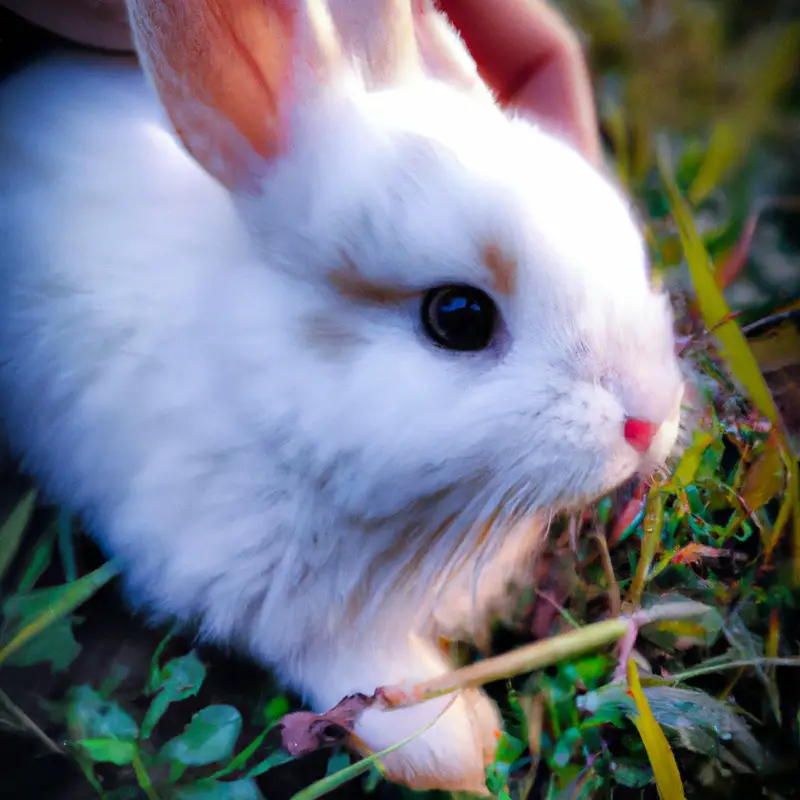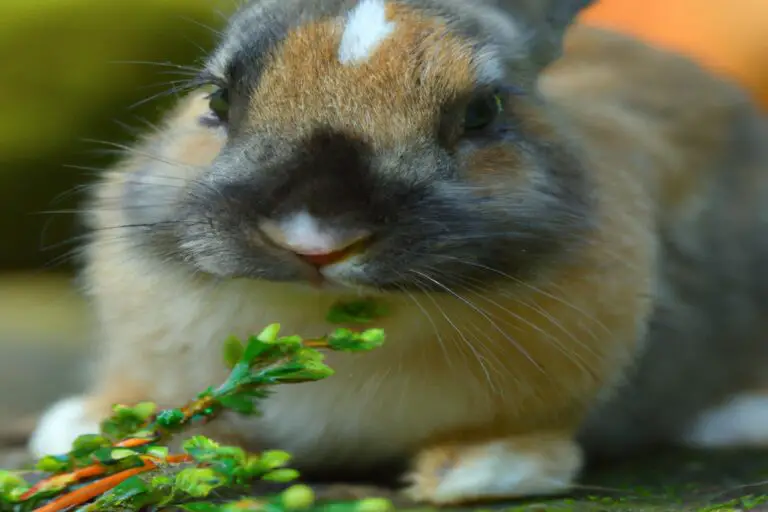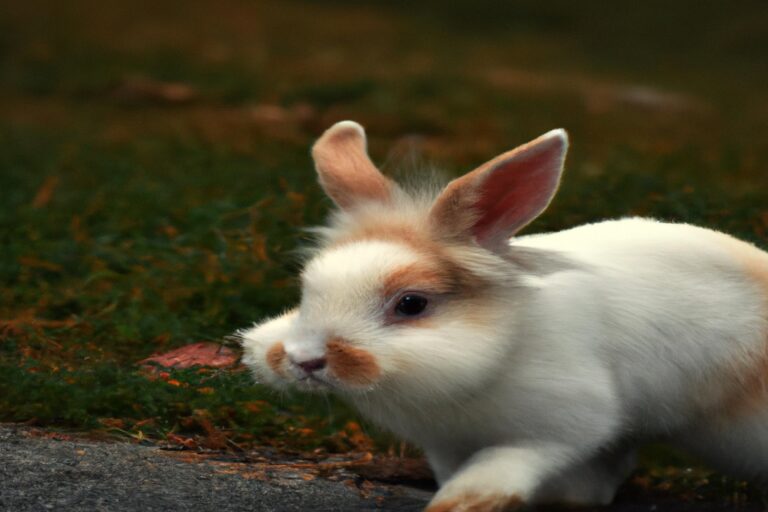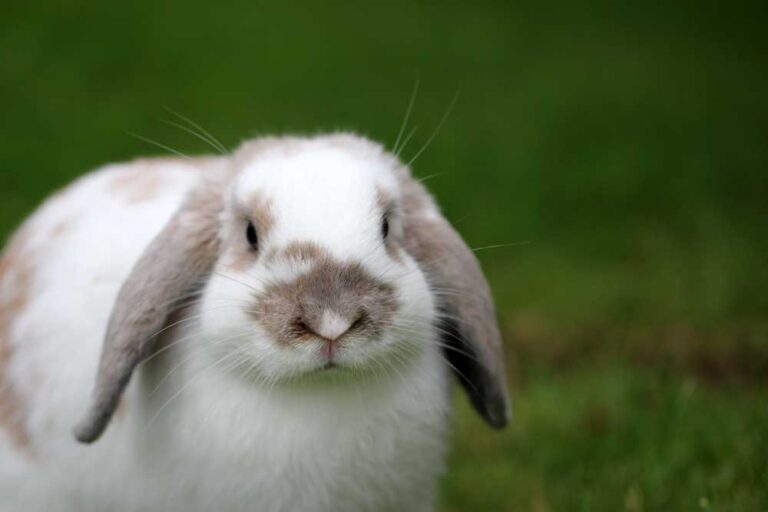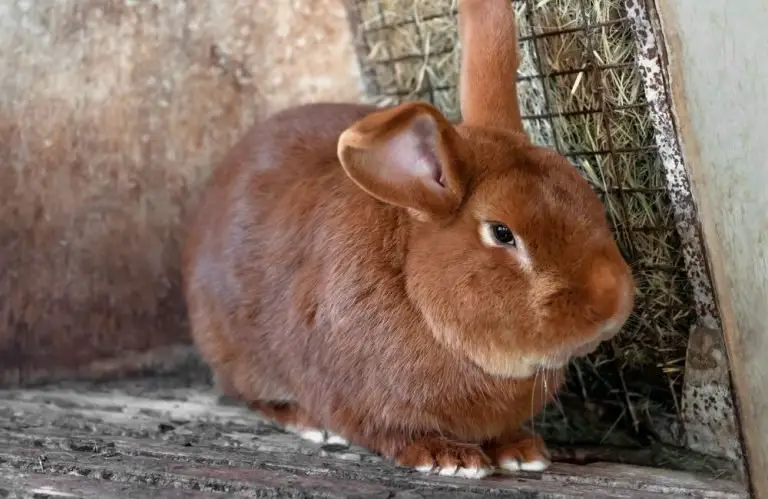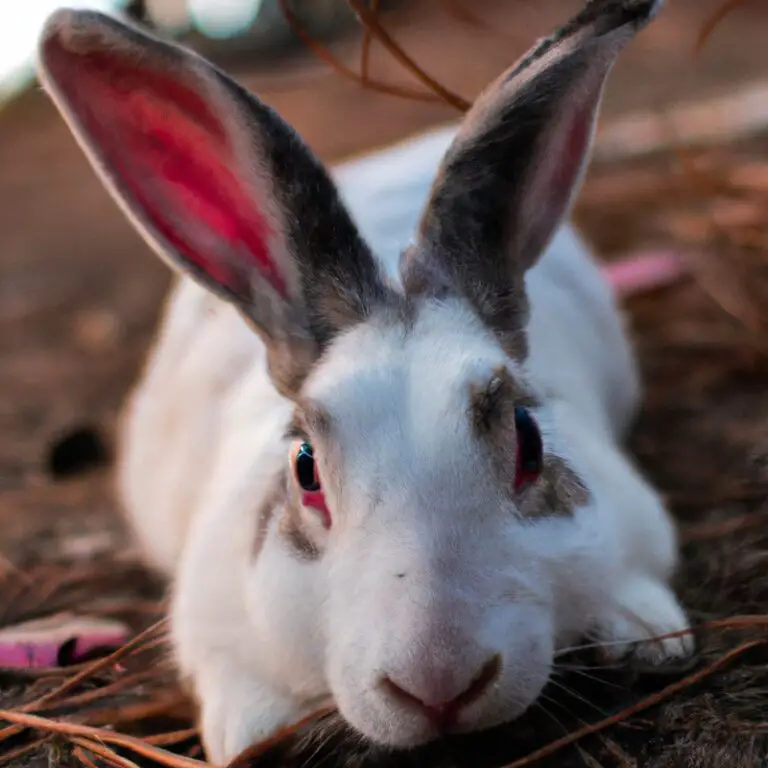All About Rabbits: Breeds, Characteristics, And Choosing The Right One For You
Key Takeaways:
- There are various rabbit breeds that possess unique characteristics, such as size, coat type, and temperament.
- It’s important to consider your lifestyle and preferences when choosing a rabbit breed as a pet.
- Some key factors to consider when selecting a rabbit include their size, activity level, and grooming needs.
- Researching and understanding different rabbit breeds can help you make an informed decision and find the perfect companion for you.
Are you considering adding a furry friend to your family?
Well, look no further than these adorable, hopping creatures – rabbits! They come in a wide variety of breeds, each with their own unique characteristics and traits.
In this comprehensive guide, we’ll dive into the fascinating world of rabbits, exploring everything from their different breeds to their size, coat types, and temperament.
We’ll also cover essential topics like their basic care, exercise needs, health and wellness, and the joys of keeping rabbits as pets.
So, whether you’re a first-time rabbit owner or a seasoned rabbit enthusiast, get ready to learn all about these delightful creatures.
Let’s jump right in!
| Breed | Weight | Size | Coat Type | Temperament |
|---|---|---|---|---|
| Lionhead | 2-3.5 lbs | Small | Medium | Friendly, Playful |
| Dutch | 3-5 lbs | Medium | Short | Outgoing, Energetic |
| Flemish Giant | 14+ lbs | Extra Large | Short | Gentle, Calm |
| Rex | 7-10.5 lbs | Medium | Medium | Curious, Affectionate |
| Mini Lop | 4-6 lbs | Small | Medium | Sociable, Gentle |
Breed Overview
Let’s dive into an overview of rabbit breeds, including popular and unique varieties, as well as factors to consider when choosing the right breed for you.
Popular Rabbit Breeds
There are many popular rabbit breeds to choose from if you’re considering getting a pet rabbit. Some of the most well-known breeds include:
- Holland Lop: These adorable rabbits have floppy ears and come in a variety of colors. They are known for their friendly and gentle nature, making them great pets for families.
- Mini Rex: With their plush velvety fur, Mini Rex rabbits are incredibly soft. They are also friendly and playful, making them a popular choice for both children and adults.
- Lionhead: As the name suggests, Lionhead rabbits have a distinctive mane of long fur around their heads. They are small in size and known for their friendly and outgoing personalities.
- Netherland Dwarf: These tiny rabbits may be small, but they have big personalities. Netherland Dwarfs are energetic and curious, and they come in a wide variety of colors.
These are just a few examples of popular rabbit breeds. Each breed has its own unique characteristics and care requirements, so make sure to do your research before choosing the perfect rabbit for you.

Unique Rabbit Breeds
There are several unique rabbit breeds that you might find interesting.
Here are a few examples:
- The Lionhead: This breed is known for its distinctive mane of fluffy fur around its head, resembling that of a lion. It has a compact body and comes in various colors.
- The Flemish Giant: As the name suggests, this breed is known for its large size. They can weigh up to 20 pounds and have a calm and docile temperament.
- The English Angora: With its long, silky fur, the English Angora is a beautiful and soft breed. It requires regular grooming to prevent matting and keep its coat healthy.
- The Netherland Dwarf: If you’re looking for a small breed, the Netherland Dwarf is perfect. It has a compact body and comes in various colors. Despite their size, they are energetic and playful.
These unique rabbit breeds offer a variety of characteristics and appearances, so you can find one that matches your preferences.
Factors to Consider When Choosing a Breed
When choosing a breed of rabbit, there are a few important factors to consider.
- Size: Think about the space you have available for a rabbit. Large breeds need more room to roam.
- Temperament: Consider your lifestyle and what kind of personality you want in a pet. Some breeds are more active and outgoing, while others are more laid-back and calm.
- Grooming: Different breeds have different grooming needs. Consider how much time and effort you’re willing to put into maintaining your rabbit’s coat.
- Lifespan: Rabbits have varying lifespans, so think about the long-term commitment you’re willing to make.
- Health concerns: Research any breed-specific health issues and be prepared to handle them if necessary.
Remember, it’s important to choose a breed that aligns with your lifestyle and preferences to ensure a happy and fulfilling relationship with your rabbit.
Characteristics of Rabbits
Rabbits have distinct characteristics in terms of size, weight, coat types and colors, as well as temperament and personality traits.
Size and Weight
Rabbits come in various sizes, ranging from small to medium.
On average, their weight can range from 2 to 20 pounds, depending on the breed.
Smaller breeds, such as the Netherland Dwarf, weigh around 2 to 4 pounds, while larger breeds like the Flemish Giant can weigh up to 20 pounds.
When considering a rabbit as a pet, it’s important to choose a size and weight that is suitable for your living space and preferences.
Keep in mind that the size and weight of a rabbit can also impact their health and lifespan.
Coat Types and Colors
Rabbits come in a variety of coat types and colors. Some common coat types include short, smooth fur and longer, dense fur.
You may also find rabbits with rex fur, which is plush and curly.
As for colors, rabbits can be solid, such as black, white, or brown. They can also have patterns like spotted or tortoiseshell.
Some rabbits even have unique fur colors and patterns like the Himalayan or the agouti.
Whether you prefer a specific coat type or a certain color, there’s a rabbit out there that will catch your eye.
Temperament and Personality Traits
Rabbits are known for their varied temperaments and unique personality traits.
Some rabbits can be shy and cautious, while others are more outgoing and curious.
It’s important to spend time observing and interacting with rabbits before choosing the right one for you.
Some rabbits might be more suitable for families with children, while others might prefer a quieter environment.
Additionally, rabbits can vary in their level of independence and need for social interaction.
Understanding the temperament and personality traits of different rabbit breeds can help you find the perfect match for your lifestyle and preferences.
Basic Care for Rabbits
When it comes to basic care for rabbits, there are three main aspects to consider: housing and habitat, diet and nutrition, and grooming and hygiene.
Housing and Habitat
When it comes to housing and habitat for rabbits, you’ll want to ensure they have a safe and comfortable space to live in. Here are a few key things to keep in mind:
- Size: Rabbits need a cage or hutch that is large enough for them to stretch out and move around. Aim for at least 4 times their body length.
- Flooring: Avoid using wire flooring, as it can be uncomfortable for their feet. Instead, use solid flooring with bedding or a soft mat.
- Ventilation: It’s important to provide good ventilation in their space to prevent overheating. A well-ventilated area will also help control odors.
- Security: Make sure their cage or hutch is secure to keep them safe from predators and prevent them from escaping. Check for any gaps or loose parts regularly.
- Enrichment: Provide your rabbit with toys, tunnels, and hiding spots to keep them mentally stimulated. This will help prevent boredom and encourage natural behaviors.
Remember, rabbits are social animals and require companionship. Consider keeping them indoors where they can interact with their human family or provide them with a bonded mate for optimal well-being.

Diet and Nutrition
Diet and nutrition are key factors in keeping your rabbit healthy and happy. Providing a balanced diet is essential, consisting mainly of fresh hay, such as timothy or orchard grass.
Alongside hay, offer a variety of leafy greens and vegetables like kale, parsley, and carrots, while avoiding lettuce and high-sugar fruits.
Pellets formulated specifically for rabbits can be given in moderation. Remember to provide fresh water at all times and avoid overfeeding to prevent obesity.
Regularly check food freshness and consult a veterinarian for specific dietary needs.
Grooming and Hygiene
Grooming and hygiene are essential for keeping your rabbit healthy and comfortable. Regular brushing helps remove loose fur and prevent matting.
It also helps to check for any skin issues or parasites.
Trim your rabbit’s nails regularly to prevent overgrowth or discomfort. Ensure their teeth don’t become too long by providing plenty of chew toys and a proper diet.
Provide a clean living environment and regularly change their bedding to prevent odor and bacteria build-up.
Regularly check and clean their ears to prevent infections.
Exercise and Enrichment for Rabbits
Exercise and enrichment are essential for the well-being of rabbits.
Let’s explore safe exercise options and ideas for mental stimulation and enrichment.
Importance of Exercise for Rabbits
Exercise is essential for rabbits to maintain their physical and mental well-being.
Regular physical activity helps prevent obesity, improves digestion, and strengthens their muscles.
It also provides mental stimulation and prevents boredom, which can lead to destructive behaviors.
Ensure that your rabbit has a safe, spacious area to hop and run around, or consider supervised playtime outside of their enclosure.
Additionally, providing toys and puzzles can help keep them engaged and active.
Remember, exercise is crucial for a happy and healthy rabbit!
Safe Exercise Options
When it comes to safely exercising your rabbit, there are a few options you can consider. Firstly, you can provide them with plenty of space to hop around and explore in a secure and supervised area.
Ensure that there are no hazardous objects or wires that they could chew on.
Secondly, you can offer them toys like tunnels, balls, and puzzle feeders to keep them mentally stimulated while they play. Lastly, you can also engage in interactive play with your rabbit, using toys on strings or feather wands.
Remember to always monitor their activity levels and provide them with frequent breaks and rest periods.
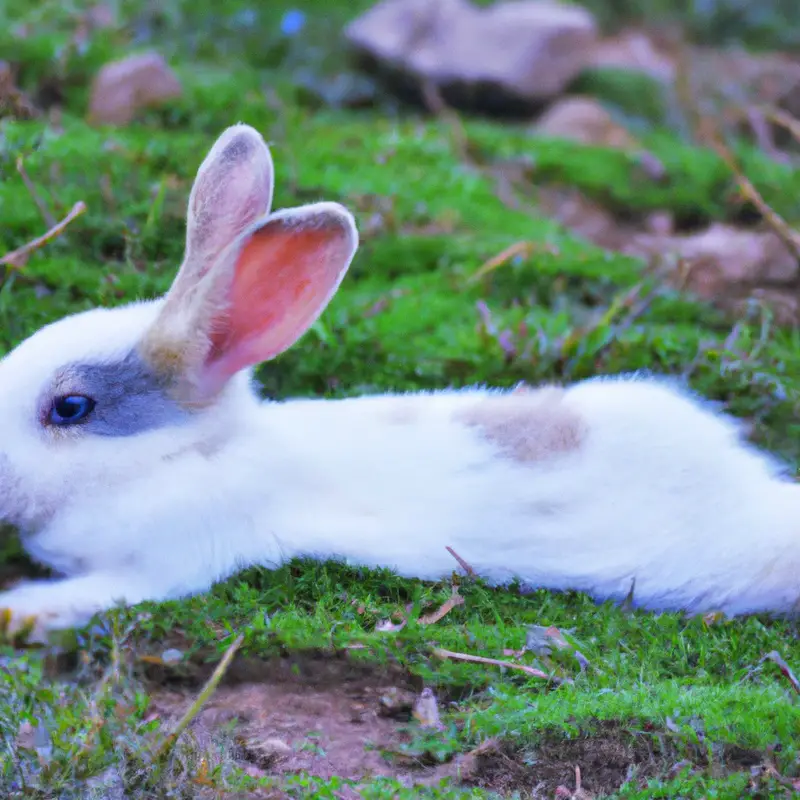
Mental Stimulation and Enrichment Ideas
To keep your rabbit mentally stimulated and enriched, here are a few ideas you can try:
- Puzzle toys: Provide your rabbit with puzzle toys that require them to think and problem-solve to get their treats. This will keep them entertained and mentally engaged.
- Hide and seek: Hide treats or small toys around their enclosure for your rabbit to find. This activity mimics natural foraging behavior and provides mental stimulation.
- Training sessions: Rabbits can be trained to do tricks or respond to commands using positive reinforcement. This not only keeps them mentally stimulated but also strengthens the bond between you and your pet.
- Rotating toys: Introduce new toys regularly and rotate them to maintain your rabbit’s interest. This prevents boredom and encourages exploration.
- Playtime outside the enclosure: Supervised playtime outside the enclosure allows your rabbit to explore new environments, providing mental stimulation and enrichment.
By incorporating these mental stimulation and enrichment ideas into your rabbit’s daily routine, you can help keep them happy, engaged, and mentally sharp.
Health and Wellness of Rabbits
Maintaining the health and wellness of your rabbit is essential for their happiness and longevity.
Common Rabbit Health Issues
Rabbits can be prone to certain health issues, so it’s important to keep an eye out for any signs of trouble. Here are some common rabbit health issues to be aware of:
- Dental Problems: Rabbits’ teeth constantly grow, which can lead to dental issues like overgrown teeth or tooth spurs. Regular check-ups and providing plenty of hay for proper chewing can help prevent these issues.
- Gastrointestinal Stasis: This is a serious condition where the digestive system slows down or stops. It can be caused by factors like hairballs, a poor diet, or stress. Ensuring a proper diet with plenty of fiber and regular exercise can help prevent this.
- Respiratory Infections: Rabbits are susceptible to respiratory infections, especially in environments with poor ventilation. Watch for symptoms like sneezing, coughing, or nasal discharge. Keep their living area clean and ensure good air circulation.
- Parasites: Rabbits can be affected by external parasites like fleas, mites, and ticks, as well as internal parasites like worms. Regular grooming, flea prevention, and deworming can help keep these pests at bay.
- Urinary Tract Issues: Bladder stones and urinary tract infections can occur in rabbits. Providing a balanced diet with plenty of fresh water and regular veterinary check-ups can help detect and prevent these issues.
Remember, if you notice any changes in your rabbit’s behavior or health, it’s always best to consult with a veterinarian who specializes in rabbit care.
Preventative Healthcare Measures
Preventative healthcare measures are essential to keeping your rabbit healthy and happy. Here are some key steps to take:
- Provide a balanced diet: Feed your rabbit a diet that includes fresh hay, vegetables, and a small amount of pellets. This will help prevent obesity and dental issues.
- Regular exercise: Allow your rabbit to have daily exercise to keep their muscles and bones strong. This can be achieved through supervised playtime and providing them with toys and tunnels.
- Mental stimulation: Provide your rabbit with mental stimulation through toys, puzzles, and social interaction. This will prevent boredom and promote overall well-being.
- Regular health check-ups: Schedule regular check-ups with a rabbit-savvy veterinarian. They can monitor your rabbit’s health, administer necessary vaccinations, and provide preventive treatments for parasites.
- Watch for signs of illness: Be vigilant for any signs of illness such as changes in appetite, behavior, or bathroom habits. Seek veterinary care immediately if you notice any abnormalities.
By staying proactive and implementing these preventative measures, you can help ensure your rabbit stays healthy and lives a long, happy life.
Rabbits as Pets
Rabbits can make wonderful pets due to their cute and cuddly nature.
They can bring joy and companionship to your life.
Benefits of Having a Rabbit as a Pet
Having a rabbit as a pet can bring numerous benefits to your life. Firstly, rabbits are known for their gentle and friendly nature, making them great companions for both children and adults.
Secondly, they are relatively low-maintenance pets, requiring minimal grooming and exercise.
Thirdly, rabbits can provide emotional support and help reduce stress levels. Additionally, watching their playful antics can bring joy and entertainment to your day.
Last but not least, rabbits can be easily litter trained, which makes them suitable for indoor living spaces.
Understanding Rabbit Behavior
Understanding Rabbit Behavior: Rabbit behavior can be complex, but getting to know their habits can help you build a strong bond with your furry friend.
Here are a few key aspects to keep in mind:
- Social Animals: Rabbits are social creatures and thrive in the company of humans or other rabbits. Consider adopting a pair for companionship.
- Communication: They communicate through body language, vocalizations, and scent marking. Ears, tail, and stance provide important cues about their mood and intentions.
- Chewing: Rabbits have a natural need to chew, which helps wear down their constantly growing teeth. Provide plenty of safe chew toys and supervise them during free-roaming time.
- Litter Training: Rabbits can be trained to use a litter box, making clean-up easier. Start by placing hay and a small amount of droppings in the box, and reward them for using it.
- Hiding and Digging: Creating hiding spots and providing tunnels or boxes for digging can satisfy their natural instincts and prevent boredom.
- Fearful Nature: Many rabbits are naturally cautious and may take time to trust their surroundings. Provide a safe and quiet environment, and let them approach you at their own pace.
- Sleeping Patterns: Rabbits are crepuscular, meaning they are most active during dawn and dusk. Respect their sleep schedule and provide a quiet area for resting.
Remember, every rabbit is unique, so observe their behavior carefully and adapt your care accordingly.
With patience and understanding, you can create a happy and enriching environment for your pet rabbit.
Socializing and Bonding with Rabbits
Socializing and bonding with rabbits is important for their well-being.
Spend time with your rabbit each day, talking to them and offering treats.
Gently pet them to build trust.
Provide a safe and spacious enclosure with toys and hiding spots.
Consider getting a companion rabbit to prevent loneliness.
Gradually introduce rabbits if they’re not bonded yet.
Avoid forcing interaction and be patient.
With time, your rabbit will warm up to you and enjoy companionship.
Frequently Asked Questions (FAQs)
How long do rabbits live?
Rabbits typically live for 8 to 12 years, although some can reach the age of 15 or more. The lifespan of a rabbit can be influenced by genetics, diet, healthcare, and overall living conditions.
Providing a balanced diet, regular veterinary check-ups, and a safe environment can help ensure a longer, healthier life for your furry friend.
So, make sure to give your rabbit the care it needs and enjoy many happy years together!
Are rabbits suitable for children?
Yes, rabbits can be suitable pets for children. They are generally calm, friendly, and easy to handle.
Rabbits can teach children responsibility and empathy as they require daily care and attention.
However, it’s important to note that rabbits need proper supervision and gentle handling to avoid injury. Additionally, young children may need assistance with the care and maintenance of a rabbit.
Can rabbits be litter trained?
Yes, rabbits can be litter trained! It may require some patience and consistency, but many rabbits can be successfully trained to use a litter box.
Start by placing a litter box in their enclosure and filling it with a rabbit-safe litter material like paper-based pellets or hay.
Encourage your rabbit to use the litter box by placing some of their droppings or soiled bedding in it.
Reward them with treats or praise whenever they use the litter box correctly.
Gradually, they will learn to associate the litter box with their bathroom needs and use it consistently.
How much exercise do rabbits need?
Rabbits need regular exercise to stay healthy and happy. They should have at least 3-4 hours of exercise time outside their cage every day.
Provide a safe and secure space for them to hop around, explore, and stretch their legs.
You can create a bunny-proofed area indoors, or let them play in a fenced yard. Always supervise them during exercise and make sure they have access to fresh water and food.
Remember, exercise is essential for their well-being!
Do rabbits require vaccinations?
Yes, rabbits do require vaccinations.
Vaccinations are an important part of keeping your rabbit healthy and protected against common diseases.
The most common vaccinations for rabbits are for myxomatosis and viral hemorrhagic disease (VHD).
These diseases can be fatal to rabbits, so it’s essential to vaccinate them to prevent illness and potential death.
Your veterinarian can provide you with more information about the specific vaccinations your rabbit needs and when they should receive them.
Remember to regularly schedule these vaccinations to ensure your rabbit stays healthy.
Final Verdict
Understanding the different breeds, characteristics, and care requirements of rabbits is vital when considering them as pets. Popular breeds like the Dutch and Lionhead have distinct traits, while unique breeds like the Netherland Dwarf and Flemish Giant offer their own appeal.
Size, coat types, and temperament are important factors to consider when choosing a rabbit.
Basic care involves providing a suitable habitat, a well-balanced diet, and regular grooming. Exercise and enrichment are crucial for a rabbit’s physical and mental well-being.
Routine veterinary care and preventive measures are essential for maintaining their health.
Rabbits make wonderful pets with their social nature and unique behaviors. Overall, rabbits require dedicated care, but the joy and companionship they offer are truly rewarding.

